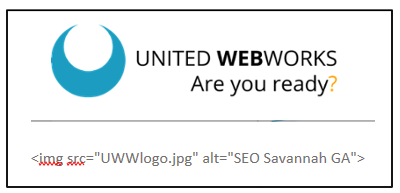Remember when "Sick" actually meant being afflicted by an illness?
Sorry. Not anymore.
Like "wicked" or "bad," Sick now describes the very positive condition of being incomparable or desirable in the extreme. This used to look AWESOME (or Sick, if you will…) And we thought this

Search Engine Optimization (SEO) started to become a "thing" as soon as competition between search engines developed into big business. The entire purpose of any search engine is to display the most relevant answer to any question in the least amount of time.
Then came an onslaught of search providers like Excite, WebCrawler, AltaVista, Lycos and Yahoo. Oh, and Ask Jeeves, which is now Ask.com.
Then came that fateful day in January of 1996 when Sergey Brin and Larry Page started working on "BackRub." It worked by defining relevance as popularity. Relevance, they figured could be determined by the number of links to a given page, weighted in turn by how many links those referring pages had.
It functioned a bit like citations of academic journal articles. The more your article is cited in other articles, the more relevant it is to its topic. If your page was linked to lots of other pages that had a significant number of backlinks themselves, you got to appear at the top of the search returns page on BackRub.
Then there was the famous renaming to "Google" ( a misspelling of Googol, or 10 to the 100th power) and an IPO of $85 per share in 2004.
Google's stated mission is to organize the world's information and make it universally accessible and useful.
Google has taken that mission seriously and now leads the search industry by far- over 70% of search traffic passes through Google's iconic search box. Because of that, we're all somewhat stuck with one gateway to our websites. That's good and bad.
Bad= we don't really have much choice if we don’t like something about how Google does business.
Good= it forces all of us to fight for relevance. And Google's criteria for where you appear on their search return pages have advanced to impressive levels.
That's where all the change comes in. First off, Google doesn't reveal their secret recipe to ANYONE. That would allow an unfair advantage and destroy the integrity of their commitment to delivering relevance to every searcher. A short-cutter could game the system if he or she had Google's algorithm in their clammy grasp.
Many of these updates were meant to thwart unscrupulous online marketers who would, for example, "stuff" a page with keywords after it was made known that Google used keywords to rank pages. It worked for a while, then Google caught on and changed the way it looked at pages.
So, in the name of helping you keep up with Google, here are a few of the most important changes that marketers saw in the SEO world in the last few years:
1. Mobile Responsiveness

April 21, 2015, a day that will live in SEO lore for a long time. That was the day that Google enacted a criterion that made some sites' traffic plummet while others' jumped. If your website was designed with the ability to adapt and function well on handheld screens, you were fine. If not, Google automatically ranked you lower in search returns.
Want to find out if you meet Google's phone screen criterion? Here's Google's Mobile Friendly Test Tool.
If you flunk the test, you might consider getting an assist from United WebWorks. Every site we publish is fully mobile-friendly and we can make yours look great and perform the way your customers want it to on their small screen. For more information on this, see: Mobile Websites Savannah GA | Did You Miss "Mobile-geddon?
2. Topical relevance
There's someone typing a relevant keyword into a search engine as you read this. They may be local and ready to narrow their buying options down to the best vendor. Will you win their business? Depends on what they find when they click on your link.
Searchers are looking for two things. 1) Positive customer reviews and 2) Content on your site that assures them that you are an authority on what they are buying. Do you know your stuff better than your competitors? While you can't always fine tune number one, the second one is fully in your control.
Keywords are still important when it comes to relevance (again, Google is looking for RELEVANCE to a search query), but search engines have gotten exponentially smarter. They are looking not only for a key phrase or two, but also thorough explorations on entire topics. It's not enough to publish a blog with a couple of keywords sprinkled in to attract the attention of a search engine robot.
Instead, build out groups of articles on topics, using as many keywords as possible as the basis for each piece. For example, instead of publishing 10 blogs with the same keywords, think of your publishing in terms of topic, with keywords as a way for search engines to find out if you are relevant. In other words, start with the phrases searchers are using to find you, and dominate that topic rather than flinging up thin content that is laden with the "right" keywords.
3. Original Content / Natural Language
"Hey Siri, show me fast food places near me."
"OK Google, where's the cheapest gas station around here?"
Voice searches are here and now. A full year ago, Google indicated that 20% of searches conducted by a phone user on the Google Chrome Android app were done by voice only- no typing. That's only going to grow as Amazon, Apple, Google and now Samsung are getting into the game big-time.
That means that search queries are moving away from stilted phrases like "Ice Cream Denver," to the more conversational "Where can I find an ice cream shop here in Denver?" We're still not certain how to adjust to these changes, simply that we must keep in mind the fact that people are using longer sentence-length phrases to inquire about your products and services. The more natural and conversational you can make your content, the better.
4. Image Optimization

Multimedia content has not shown any signs of slowing down either. The more you can include video, infographics, photos and other types of non-text based information, the better. Since search engine robots have not yet figured out how to watch an entire video to determine its relevance to a search query, marketers still need to make sure their meta-tags and alt-info are crystal clear about the content of the media on their sites. That way, an indexing robot can remember your page as something worth showing on a search return.
5. Post Click interaction
What happens after a searcher has made that all-important click that takes them to your Landing Page / Home Page / Offer / Catalog? The experience a clicker has on your site, as measured by criteria like time on a page, clicking links to other pages in your site and sharing, has begun to matter to search engines. Google's RankBrain for example, takes into consideration statistical data on what people do once they are on your site.
Implication? Put excellent, attractive and relevant content in front of everyone who visits. You'll get some bounces, sure, but think about the fact that search engine algorithms are watching what happens post-click. This is meant to drive digital marketers away from sneaky tricks and toward authentically helpful material on their sites. More page views, more interaction- Both you and Google are after the same things. Go beyond all the pre-click optimization and make give visitors the experience they want.
...and the changes keep coming. It’s difficult for a business owner, manager or full time marketer to keep track of the onslaught of changes in online marketing best practices. We are here to help. United WebWorks is your partner in keeping your company on the cutting edge of your industry and ahead of your competition. Contact us today!





